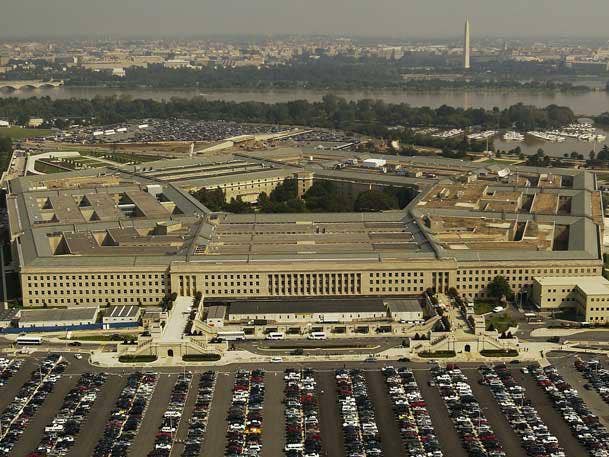Defense Official: Pentagon Must Reassess JEDI Cloud Stance
‘I can’t comment on the court case — and I’m not going to comment on specifically what DOD is going to do — but I will say…it is absolutely vital that we are able to move forward on a data-centric approach in the department,’ said Kathleen Hicks, deputy secretary of defense under the Biden administration.

Moving to a cloud architecture is “vital” for the U.S. Department of Defense, and the Pentagon must reassess where it stands on the JEDI project as ongoing litigation surrounding the contract award continues to delay the military’s digital modernization, according to a top Biden Administration defense official.
Late last month, U.S. Federal Court of Claims judge Patricia Campbell denied Microsoft’s and the U.S. Department of Justice’s requests to dismiss Amazon Web Services’ complaint that the Trump Administration allegedly interfered in the DOD’s award of the potentially $10 billion Joint Enterprise Defense Infrastructure (JEDI) cloud computing contract to rival Microsoft.
Deputy Secretary of Defense Kathleen Hicks fielded a question about plans for the JEDI contract two days later, at an April 30 program hosted by the Aspen Institute, a Washington, D.C.-based non-profit.
“I can’t comment on the court case — and I’m not going to comment on specifically what DOD is going to do — but I will say…it is absolutely vital that we are able to move forward on a data-centric approach in the department,” said Hicks, who was sworn into office on Feb. 9.
“We must have ourselves secure in cyberspace,” Hicks said. “The department weathered, for example, SolarWinds relatively well compared to other parts of the government, but that’s just the latest wake-up call. We have every reason to think that we have adversaries who are trying to get into our systems every day. So for all those reasons, moving to a cloud architecture is going to be vital to how we innovate in this department, and we’re going to have to assess where we are with regard to the ongoing litigation around JEDI and determine what the best path forward is for the department.”
Hicks was referring to the SolarWinds cyberattack, identified in December, that ensnared Microsoft and thousands of SolarWinds customers. At last nine federal government agencies were breached in the attack, which has been blamed on suspected Russian intelligence attackers. The attackers injected malicious code into Austin, Texas-based SolarWinds’ Orion network monitoring platform that was downloaded into as many as 18,000 of its customers’ computer networks.
The DOD, which did not respond to a CRN request for comment, awarded the JEDI contract to Microsoft in October 2019 in an upset win for the No. 2 cloud provider. No. 1 AWS, which had been viewed as the expected winner, is contesting the award, and a temporary restraining order halting Microsoft work on the contact was issued in February 2020 and remains in place. In February, the DOD already had said it may reassess its cloud computing procurement strategy, citing the prospect of continued lengthy litigation of the JEDI contract in a in Jan. 28 information letter sent to Congress.
AWS’ lawsuit alleges that the DOD erred in its technical evaluation of cloud providers’ bids for the JEDI contract. It also claims that the White House under the Trump administration — including former President Trump himself — had undue political influence during the bid selection. In an amended challenge to the contract award in December, AWS alleged that Trump’s “unapologetic bias” against Amazon and its CEO Jeff Bezos – also owner of The Washington Post — tainted the contract award process.
Judge Campbell has ordered AWS, Microsoft and the DOJ to file a joint status report proposing a plan for further proceedings in the case by May 28.
Oracle JEDI Protest Update
Acting Solicitor General Elizabeth Prelogar, meanwhile, last week said the U.S. Supreme Court should reject Oracle’s petition to hear its legal case against the government over the JEDI contract.
Oracle, who also had bid to provide services for the project, contends that the U.S. Court of Appeals for the Federal Circuit erred when it affirmed the Court of Federal Claims’ finding that the DOD’s decision to award the contract to a single company did not prejudice Oracle’s chances.
“Here, the court of appeals correctly affirmed the finding of the Court of Federal Claims that petitioner would not have had a ‘substantial chance’ of securing the JEDI Cloud contract even had it been a multiple-source solicitation, for the simple reason that petitioner -- by its own admission -- did not satisfy the 16 minimum security requirements of Gate 1.2 at the time of the solicitation,” Prelogar wrote in a May 3 opposition brief filed with the Supreme Court. “Under the terms of the solicitation, therefore, the agency would have been required to eliminate petitioner from the competition.”
The U.S. Court of Appeals also affirmed the Court of Federal Claims’ holdings that three former DoD employees’ alleged conflicts of interest — they previously were employed by or are currently employed by AWS — did not materially affect the JEDI procurement process.
“Those rulings are correct and do not conflict with any decision of this court or another court of appeals,” Prelogar wrote. “Further review is unwarranted.”
Oracle had filed its bid protest complaint with the Court of Federal Claims Petitioner after the U.S. Government Accountability Office denied its bid protest.